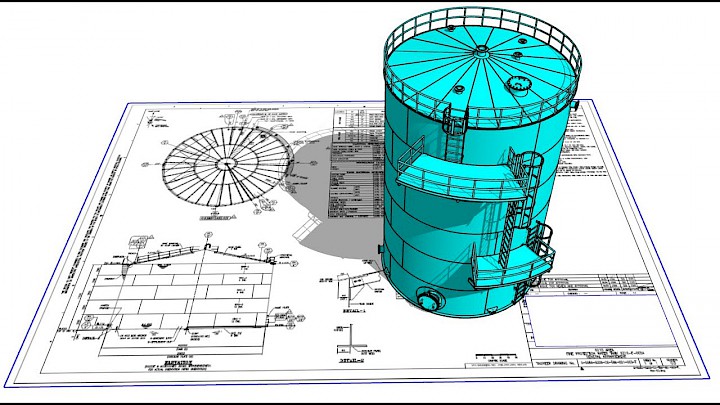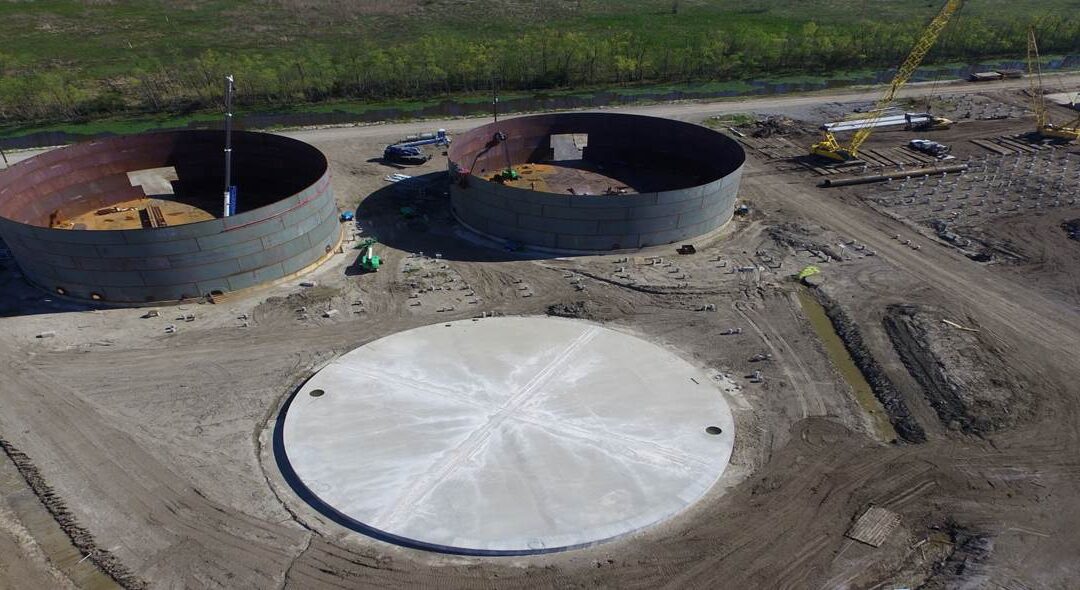How API 650 Welding Inspection Ensures Compliance with International Codes
The Benefits of Welding Examination for Enhanced Safety And Security and Performance
Welding evaluations are important for ensuring that frameworks meet rigorous market requirements. They play an essential role in determining issues early, thereby improving security and minimizing the danger of devastating failures. In addition, these assessments can bring about substantial price financial savings by avoiding costly fixings and downtime. As companies aim for better efficiency and integrity, the significance of a robust assessment process can not be overemphasized. What other advantages might emerge from a dedication to detailed welding assessments?
Ensuring Conformity With Industry Specifications
Guaranteeing conformity with industry requirements is important for keeping quality and safety and security in welding projects. Sticking to established procedures not just safeguards employees but likewise enhances the sturdiness and efficiency of the end product. Welding examinations conducted at numerous stages of the process assistance recognize any variances from these standards, allowing prompt rehabilitative actions. This positive technique mitigates the danger of failings that can arise from second-rate handiwork.
Conformity with industry standards fosters count on among stakeholders, consisting of customers, governing bodies, and the labor force. It indicates a dedication to quality and responsible practices, which can lead to enhanced service chances and an affordable edge in the marketplace - API 650 Welding Inspection. Routine assessments additionally ensure that strategies and products made use of line up with the latest technological developments and safety regulations. Ultimately, adherence to industry criteria is not just a governing demand however a cornerstone of quality control in welding tasks
Enhancing Security With Early Discovery of Issues
While the main goal of welding inspections frequently centers on conformity, they play an essential role in boosting security by enabling the very early discovery of problems. Identifying concerns such as incomplete fusion, splits, or porosity during evaluations can greatly minimize the danger of devastating failures. Early discovery enables prompt interventions, ensuring that malfunctioning welds do not compromise architectural stability.
Additionally, organized evaluations cultivate a culture of safety and security within organizations by emphasizing the value of quality assurance. This aggressive method not just safeguards employees however additionally safeguards the surrounding atmosphere. Normal evaluations can disclose trends in flaw occurrence, enabling for adjustments in welding methods and training programs to resolve underlying problems.
Subsequently, welding evaluations act as a vital guard, reinforcing general safety and security and performance by determining issues before they escalate right into significant risks. This dedication to quality directly adds to the long life and reliability of welded structures.
Minimizing Expenses by Protecting Against Failures
By executing complete welding inspections, organizations can effectively decrease prices related to failings and rework. The proactive identification of flaws throughout the welding procedure decreases the threat of tragic failings that can cause pricey fixings or substitutes. Early discovery permits for prompt treatments, which stops the rise of small problems right into major troubles that strain budget plans and resources. In addition, by making certain that welds fulfill defined requirements, organizations can stay clear of hold-ups in job timelines brought on by the need for considerable rework or added assessments later in the process. This not just saves money yet likewise enhances functional effectiveness. Furthermore, a reputation for high quality workmanship can bring about boosted customer satisfaction and repeat organization, additional contributing to economic stability. Overall, purchasing welding evaluations is a critical method that cultivates expense financial savings while protecting the honesty of welded frameworks.
Improving Performance and Durability of Frameworks


Welding assessments play a crucial role in enhancing the performance and durability of structures, as they verify that welds are implemented to the highest possible standards. By identifying problems early in the welding process, assessments stop weak points that can endanger architectural honesty. This positive technique warranties that the products utilized satisfy needed specs, consequently enhancing their load-bearing capability and resilience.
Furthermore, consistent monitoring of welding More about the author practices contributes to the total top quality of building and construction tasks. The potential for exhaustion and failing over time is significantly decreased when welds are validated for conformity with market standards. Frameworks that are developed with correctly inspected welds are most likely to experience fewer upkeep problems and enhanced resilience.
Ultimately, strenuous welding evaluations not just boost the immediate performance of a structure yet likewise expand its operational life expectancy, supplying lasting worth to both builders and end-users alike.
Promoting a Society of High Quality and Integrity
A commitment to top quality and dependability in welding techniques considerably adds to the general success of construction jobs. When companies prioritize these worths, they cultivate a culture that motivates thorough attention to detail and adherence to sector criteria. This society not just enhances the skill level of welders however additionally advertises accountability and team effort among all stakeholders entailed in the task.

Normal welding inspections function as a cornerstone in this social change, enhancing the relevance of regular efficiency and security procedures (API 650 Welding Inspection). By carrying out extensive evaluation procedures, companies can identify potential imperfections early, mitigating threats and staying clear of pricey rework. Moreover, a focus on high quality and reliability instills self-confidence amongst customers and partners, leading to more powerful relationships and enhanced credibilities
Eventually, fostering a culture of top quality and dependability in welding techniques not just raises project end results however also assures long-lasting sustainability and success in the construction industry.
Regularly Asked Concerns
What Certifications Should a Welding Examiner Have?
A welding examiner should have appropriate certifications, such as AWS CWI or CSWIP. In addition, they ought to have experience in metallurgy, welding procedures, and assessment techniques, together with solid analytical skills and focus to detail for efficient examinations.

How Commonly Should Welding Inspections Be Performed?
Welding inspections should be conducted frequently, preferably after each substantial phase of the welding process. Additionally, periodic evaluations ought to occur based on project requirements, solution problems, and regulatory standards to guarantee ongoing quality and safety.
What Tools Are Used Throughout Welding Inspections?
Welding assessments blog here make use of numerous devices, consisting of ultrasonic testers, magnetic fragment testers, visual examination tools, and radiographic devices. Each device serves a certain objective, guaranteeing weld high quality and structural honesty via detailed evaluation and analysis.
Can Welding Inspections Be Carried Out Remotely?
Welding assessments can undoubtedly be carried out from another location making use of sophisticated technologies such as drones and specialized electronic cameras. These tools enable examiners to evaluate welding top quality and stability from a distance, enhancing efficiency and safety and security in different settings.
What Are the Typical Kinds of Welding Flaws?
Common kinds of welding defects consist of porosity, cracks, incomplete blend, undercutting, and slag incorporation. These problems can endanger the integrity linked here and toughness of welds, resulting in possible failures in structural applications otherwise dealt with effectively.
Welding evaluations are crucial for guaranteeing that frameworks meet strict sector standards. Welding assessments performed at various phases of the procedure help determine any kind of deviations from these requirements, making it possible for prompt corrective actions. Welding assessments play an essential function in enhancing the performance and durability of frameworks, as they validate that welds are executed to the highest requirements. Welding assessments need to be conducted frequently, preferably after each substantial stage of the welding procedure. API 650 Welding Inspection. Welding inspections utilize various tools, including ultrasonic testers, magnetic bit testers, visual assessment devices, and radiographic devices